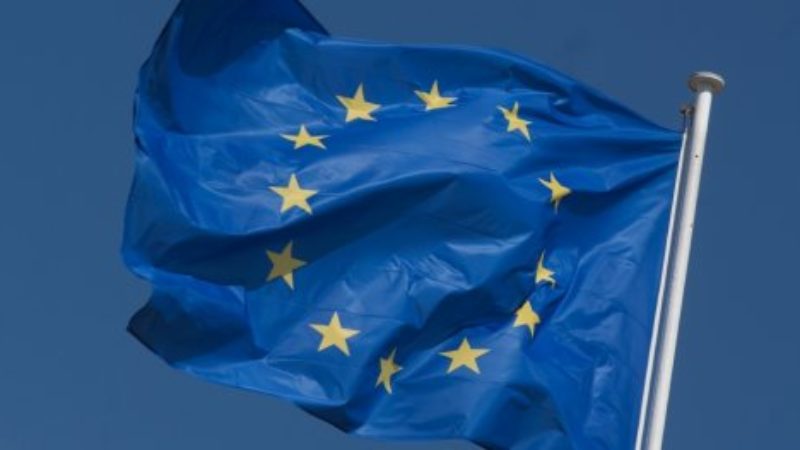
Just before New Year, we were driving back to Northumberland after seeing friends in Edinburgh and came over Carter Bar on the Scottish/English border in a howling gale. As usual we stopped to look back towards the Cheviots and south towards home, a good opportunity to break up the journey. This time, I took the time to read the plaque under the beacon at the border, which was erected to celebrate the launch of the European single market in 1992. With all the political and media discussion about Britain’s future relationship with the EU, it was a poignant moment on a windswept moor to realise the enthusiasm felt 20 years ago.
It also reminded me how quickly we have taken for granted the benefits of EU membership, whether it’s the investment in our infrastructure from EU structural funds, especially in the North-East, the jobs created through inward investment to ensure access to the single market (whether at Nissan in Sunderland, SSI at Redcar or the much anticipated jobs at Hitachi in Newton Aycliffe), or the indirect jobs in supply chains and local economies. The dream of those visionary negotiators in the 1940s, including Churchill, was that economic integration would ensure that a Continent haunted by war would stop sacrificing its sons and daughters and build a peaceful prosperity. Neither my parents’ generation nor mine has been conscripted, which is testament enough with or without the Nobel Peace Prize.
The beacon at Carter Bar also reminds us that 1992 marked the launch of the European Social Chapter, the creation of pan-European social rights to maternity and paternity leave, equal treatment in the workplace for atypical workers, anti-discrimination and equality rights, rights to worker information, consultation and participation, and the further development of health and safety protection. A set of rights and principles recognising that peaceful economic prosperity can only come if accompanied by social justice. A set of rights extended to British workers by the new Labour government in 1997. A set of rights and principles that promised that competition between countries should be based on fair competition and aimed at improving living and working conditions. A set of rights and principles that are today under direct attack from the current UK government under the guise that they hinder growth.
Twenty years on from the lighting of the Carter Bar beacon, the EU is at a crucial crossroads in its development. At the beginning of January, the IMF reiterated the destructive nature of simultaneous austerity measures applied throughout the Continent (including the UK), which is stripping the life out of our economy at a faster rate than previously recognised. Savage cuts in welfare states and wages are creating increasing levels of insecurity in society. While rising inequalities between rich and poor, precarious work and underemployment are being actively promoted through radical labour market deregulation. Many of Europe’s governments appear to have signed up to a collective suicide pact. This austerity is providing a feeding ground for xenophobia and the rise of populist attacks on the weakest in society: migrants, the unemployed, the disabled, and the poor more generally. It is undermining the very foundations of the post-war peaceful prosperity enjoyed in Europe. No one should be in any doubt that the Conservatives are at the fore-front of this attack at home and in the European Parliament. That’s more clear than ever now that the anti-EU grouping Fresh Start have published their ‘manifesto’, with a foreword from William Hague.
Top of their agenda in the ‘renegotiation’ of Britain’s membership of the EU proposed by Cameron is the withdrawal from the social rights enshrined in 1992.
With Cameron due to speak in one or other location on Friday, the debate is not just about whether Britain should be in or out of the EU, this crisis is being used to try to rewrite and take basic rights away from British citizens at a time when they are most needed.
A year before the next European Parliament elections, it falls to those of us who hold workers’ rights and vital investment in our regions dear to make the case for their defence ring louder. As Nye Bevan said of the NHS, the rights guaranteed by the European Social Chapter “will last as long as there are folk left with the faith to fight for [them]”.
Judith Kirton-Darling is Confederal Secretary of the European TUC and is a member of Hexham CLP




More from LabourList
‘Factionalism at the top is weakening Labour – and handing a gift to Reform’
‘Europe must stand strong on its own as US security guarantees grow conditional’
‘Tackling poverty should be the legacy of Keir Starmer’s government’